China to India Shipping Forwarder
The Ultimate Guide
Shipping From China to India: The Ultimate Guide 2024
India has been one of China’s key trading partners, with bilateral trade showing steady growth in recent years. According to the Global Trade Research Initiative, trade between China and India reached $118.4 billion during the 2023–2024 fiscal year, with an 8.7% increase in Indian exports to China . The top imports from China include electronics, machinery, chemicals, textiles, and plastics, emphasizing India’s reliance on Chinese goods.
For Indian importers, sourcing products from China offers a dual benefit of cost efficiency and access to diverse, high-quality goods. However, the shipping process can be complex, involving logistics challenges, customs regulations, and varying transit times. This guide is designed to help importers thoroughly understand the shipping process from China to India, covering costs, shipping options, and potential obstacles. With these insights, businesses can mitigate risks, reduce costs, and make more informed shipping decisions.
Please confirm if this section is satisfactory or needs adjustments. Once confirmed, I will proceed with the Freight Shipping Cost from China to India section.
Freight Shipping Cost from China to India
When shipping goods from China to India, importers can choose from three primary shipping methods, each catering to different needs in terms of speed, cost, and shipment size:
Air Freight Shipping
Air freight is the fastest option, suitable for time-sensitive shipments. Costs typically range from $3 to $6 per kilogram, depending on the weight, dimensions, and the season. Transit times are generally 3 to 7 days.Sea Freight Shipping
Sea freight is the most economical choice for large shipments. Full Container Load (FCL) shipping for a 20-foot container to Indian ports like Mumbai or Chennai costs between $700 and $1,200, with transit times ranging from 15 to 30 days.Express Shipping
Express services like DHL, FedEx, and UPS are ideal for small parcels or urgent needs. Costs average $8 to $15 per kilogram, with delivery times of 3 to 5 days.
Each option offers distinct advantages, and the choice depends on the shipment’s size, urgency, and budget. Importers can strategically balance speed and cost to optimize their supply chain.
Air Freight Shipping Cost from China to India
Air freight is a popular shipping method for goods requiring quick delivery or when sea freight is not a viable option. The costs for air freight vary based on shipment size, weight, and the chosen airline. Here’s an overview:
- Pricing Range: Air freight rates range from $3 to $6 per kilogram for shipments over 1000 kilograms. Smaller shipments might have slightly higher rates.
- Transit Time: Air freight typically takes 3 to 7 days, making it a fast and efficient option.
- Volume Discounts: Larger shipments often enjoy lower per-kilogram rates.
Below is a detailed cost table:
| Shipping Mode | Unit | Price Range | Transit Time |
|---|---|---|---|
| Air Freight (1000kgs+) to Mumbai Airport | Per Kilogram | $3.50 – $5.50 | 3-5 Days |
| Air Freight (1000kgs+) to Chennai Airport | Per Kilogram | $3.80 – $6.00 | 4-6 Days |
| Air Freight (1000kgs+) to Delhi Airport | Per Kilogram | $4.00 – $6.00 | 3-7 Days |
Air freight is best suited for high-value, time-sensitive products like electronics, fashion apparel, and pharmaceuticals. While it is more expensive than sea freight, the speed and reliability often justify the cost.
Advantages and Disadvantages of Air Freight
Air freight offers unique advantages but also comes with limitations. Here’s a balanced look at its pros and cons to help importers decide whether it fits their needs.
Advantages of Air Freight
Speed:
Air freight is the fastest shipping method, ideal for urgent or time-sensitive shipments. Transit times are typically 3–7 days, significantly quicker than sea freight.Reliability:
Airlines operate on precise schedules, reducing delays. This makes air freight highly dependable for businesses with strict delivery timelines.Security:
Airports have stringent security measures, reducing the risk of theft or damage, especially for high-value goods like electronics and luxury items.Global Reach:
Air freight connects major airports across the globe, making it easier to transport goods to remote or inland locations in India.
Disadvantages of Air Freight
Cost:
Air freight is significantly more expensive than sea freight, especially for bulky or heavy shipments, with rates ranging from $3 to $6 per kilogram.Limited Capacity:
Airlines impose strict size and weight limits, making air freight unsuitable for oversized goods or large quantities.Environmental Impact:
Air freight has a higher carbon footprint compared to other shipping methods, which may be a concern for environmentally conscious businesses.
Best Products for Air Freight
Air freight is ideal for high-value, lightweight, and time-sensitive goods such as electronics, fashion, pharmaceuticals, and perishable items.
Sea Freight Shipping Cost from China to India
Sea freight is the most cost-effective option for transporting large quantities of goods from China to India. While it is slower than air freight, it is the preferred choice for bulky shipments or when cost savings are a priority.
- Pricing Range: Full Container Load (FCL) shipping costs between $700 and $1,200 for a 20-foot container and $1,200 to $2,000 for a 40-foot container, depending on the destination port and shipping season.
- Transit Time: Transit times typically range from 15 to 30 days, depending on the departure and arrival ports.
Below is a detailed cost overview for FCL shipments:
| Ocean Shipping Cost From China to India | Shipping Cost |
|---|---|
| FCL (20-foot container) to Mumbai Port | $700 – $1,100 |
| FCL (40-foot container) to Mumbai Port | $1,200 – $1,800 |
| FCL (20-foot container) to Chennai Port | $750 – $1,200 |
| FCL (40-foot container) to Chennai Port | $1,300 – $2,000 |
Why Choose Sea Freight?
Sea freight is best for goods that are not time-sensitive, such as furniture, machinery, textiles, and raw materials. It offers excellent value for businesses looking to transport large volumes at a lower cost per unit.
Express Shipping Cost from China to India
Express shipping is the fastest and most convenient option for transporting small parcels or urgent shipments from China to India. Major express shipping providers like DHL, FedEx, and UPS offer reliable services with door-to-door delivery.
- Pricing Range: Express shipping costs typically range from $8 to $15 per kilogram, depending on the carrier and package weight.
- Transit Time: Delivery times are usually between 3 to 5 days, making it an excellent choice for time-sensitive shipments.
Below is a comparison of costs for different express shipping providers:
| Express Shipping Provider | Shipping Cost (per kg) | Transit Time |
|---|---|---|
| DHL | $8 – $12 | 3–5 Days |
| FedEx | $9 – $13 | 3–5 Days |
| UPS | $10 – $15 | 3–5 Days |
Why Choose Express Shipping?
Express shipping is perfect for businesses shipping samples, high-value products, or urgent small orders. While it is more expensive than air or sea freight, its speed and convenience make it an invaluable option for specific use cases.
Benefits and Use Cases for Express Shipping
Express shipping offers unmatched speed and convenience, making it an essential option for specific shipping needs. Here are some key benefits and use cases:
Benefits of Express Shipping
Fast Delivery
Express shipping guarantees delivery within 3–5 days, making it ideal for urgent shipments that require immediate attention, such as product launches or critical spare parts.Door-to-Door Service
With end-to-end logistics management, express shipping eliminates the need for multiple handlers, ensuring smooth and hassle-free delivery.Real-Time Tracking
Most express shipping providers offer robust tracking systems, allowing businesses to monitor shipments and provide accurate delivery timelines to customers.Reliability
Express shipping services prioritize on-time delivery and package security, ensuring minimal delays and reducing the risk of lost or damaged goods.Custom Clearance Support
Providers like DHL, FedEx, and UPS handle customs documentation, simplifying the process for importers and ensuring compliance with local regulations.
Use Cases for Express Shipping
- Sample Shipments: Ideal for sending product samples quickly to potential clients or suppliers.
- E-commerce Orders: Ensures timely delivery of small, high-value goods to end customers.
- Urgent Documents: Perfect for delivering important legal, financial, or business documents.
- High-Value Products: Suitable for electronics, luxury goods, and pharmaceuticals that require extra security and fast delivery.
- Seasonal Demand: Effective for urgent restocking during peak sales seasons or promotions.
Door-to-Door Shipping from China to India
Door-to-door shipping simplifies the logistics process by offering a seamless service that covers the entire shipping journey—from the supplier’s location in China to the recipient’s address in India. This option is ideal for businesses seeking a hassle-free solution with minimal handling on their part.
Key Features of Door-to-Door Shipping
- All-Inclusive Service: The provider manages all aspects of shipping, including pickup, transportation, customs clearance, and final delivery.
- Convenience: Businesses save time and resources by eliminating the need to coordinate with multiple service providers.
- Transparency: Door-to-door services often include a detailed cost breakdown, avoiding unexpected charges.
- Flexibility: Available for all major shipping modes—air, sea, and express—depending on the shipment’s urgency and size.
When to Use Door-to-Door Shipping
Door-to-door shipping is suitable for importers handling complex shipments, businesses with limited logistics knowledge, and customers requiring consistent service for both small and large orders.
DDP Shipping Cost From China to India
Delivered Duty Paid (DDP) shipping is a popular option for businesses looking for an all-inclusive solution where the seller or freight forwarder manages every aspect of the shipping process, including customs duties and taxes. DDP is available for all major shipping modes: air freight, sea freight, and express shipping.
Estimated Costs
- Air Freight DDP: $7–$10 per kilogram, with transit times of 7–12 days.
- Sea Freight DDP: $500–$800 per 20-foot container and $1,200–$1,800 per 40-foot container, with transit times of 25–35 days.
- Express Shipping DDP: $10–$18 per kilogram, with delivery in 5–7 days.
Key Benefits of DDP
- All costs, including customs duties and taxes, are handled by the shipping provider.
- Simplified process eliminates the need for the importer to manage customs clearance.
- Ideal for businesses with no prior experience in international shipping.
For precise DDP shipping costs tailored to your needs, we recommend contacting MBMLOG’s 24/7 online support team for detailed quotes and expert assistance.
How Long is DDP Shipping From China to India?
The transit time for DDP shipping depends on the shipping mode chosen. Below is an overview of the typical delivery times:
- Air Freight DDP: Takes approximately 7 to 12 days, including customs clearance and last-mile delivery.
- Sea Freight DDP: Usually takes 25 to 35 days, as it involves longer transit times across ports and inland transportation.
- Express Shipping DDP: Offers the fastest delivery time of 5 to 7 days, suitable for urgent shipments.
DDP shipping ensures a smooth process by integrating customs clearance and delivery into one service, making it a reliable option for businesses looking to streamline their logistics.
Would you like me to continue with the Advantages of Door-to-Door Services section?
Advantages of Door-to-Door Services
Door-to-door shipping is an efficient and hassle-free logistics solution, offering numerous benefits to importers. Below are the key advantages explained in detail:
Simplified Logistics Management
With door-to-door services, businesses no longer need to manage multiple providers or deal with different stages of the shipping process. The service provider takes full responsibility, ensuring end-to-end management from pickup to delivery.Cost Transparency
Door-to-door shipping typically provides an all-inclusive cost structure, including customs duties, taxes, and transportation fees. This eliminates unexpected expenses, allowing businesses to budget accurately.Time Efficiency
By handling all aspects of the shipping process, door-to-door services save businesses valuable time. Importers can focus on core operations without worrying about coordinating shipments.Reduced Risk
The service provider ensures compliance with customs regulations, reducing the risk of penalties, delays, or non-compliance issues. Additionally, the streamlined process minimizes the chances of miscommunication or lost shipments.Flexibility Across Modes
Door-to-door services are available for all shipping methods—air, sea, and express—allowing businesses to choose the most suitable option based on their needs, shipment size, and urgency.
Key Considerations When Choosing the Right Door-to-Door Service
Selecting the right door-to-door service provider is crucial to ensuring a smooth and cost-effective shipping experience. Here are some essential factors to consider:
Experience and Reputation
Choose a provider with a proven track record in handling door-to-door shipments, particularly for routes between China and India. Experienced providers are more likely to manage complex processes efficiently and avoid delays or errors.Service Coverage
Ensure the provider offers comprehensive coverage, including pickup in China, customs clearance in both countries, and delivery to your destination in India. Providers with an extensive network are better equipped to handle logistics seamlessly.Transparent Pricing
Look for a provider that offers clear, all-inclusive pricing without hidden fees. Request a detailed cost breakdown to understand what’s included, such as customs duties, taxes, and additional charges.Customer Support
Reliable and responsive customer support is essential. Choose a provider with a dedicated support team that can assist with real-time updates, resolve issues promptly, and provide expert guidance throughout the process.Flexibility in Shipping Modes
Opt for a provider that offers multiple shipping modes (air, sea, and express) under their door-to-door service. This allows you to select the best option based on your shipment size, urgency, and budget.
Understanding India Import Tax, Duties, and VAT Costs
When importing goods into India, understanding the tax structure is critical for budgeting and compliance. The primary costs include Customs Duties, Goods and Services Tax (GST), and other applicable charges. Below is a breakdown of these components:
Customs Duty:
Customs duties are calculated based on the product’s value, including insurance and freight costs (CIF). These rates vary depending on the product type and are set by the Indian Customs Tariff.GST:
Goods and Services Tax (GST) is levied on all imports and ranges from 5% to 28%, depending on the product category. This tax is applicable on the total value, including the customs duty.Other Charges:
Importers may also face additional costs, such as handling fees, port charges, or anti-dumping duties, depending on the nature of the goods.
Below is a table showcasing estimated duties and taxes for popular imported goods:
| Products | Custom Duties (%) | GST (%) |
|---|---|---|
| Electronics | 10 – 20 | 18 |
| Machinery | 7.5 – 15 | 18 |
| Textiles | 10 | 12 |
| Chemicals | 5 – 10 | 18 |
| Pharmaceuticals | 5 | 12 |
| Furniture | 25 | 18 |
| Toys | 20 | 12 |
| Plastics | 10 – 15 | 18 |
| Automobiles | 60 – 100 | 28 |
| Industrial Equipment | 7.5 – 15 | 18 |
| Footwear | 20 | 12 |
| Apparel | 10 | 12 |
| Metals | 7.5 – 10 | 18 |
| Cosmetics | 20 | 28 |
| Watches | 25 | 28 |
Understanding these costs ensures better pricing and planning, helping importers remain compliant and competitive.
Navigating Legal Compliance for Shipping to India
Legal compliance is a critical part of shipping goods from China to India. Failure to adhere to import regulations can result in delays, fines, or confiscation of goods. Here’s a brief guide to the legal requirements and certifications needed:
Key Legal Requirements
Import Export Code (IEC)
An IEC is mandatory for businesses in India to import goods. This unique 10-digit code must be obtained from the Directorate General of Foreign Trade (DGFT).Customs Documentation
Importers must submit accurate documents, including the bill of lading, invoice, packing list, and bill of entry, to Indian Customs for clearance.Restricted & Prohibited Items
Certain items are restricted or prohibited for import into India. Ensure the shipment complies with the Foreign Trade Policy guidelines.Product-Specific Certifications
Depending on the product, specific certifications might be required, such as:- BIS Certification for electronics and IT goods.
- FSSAI Certification for food and beverages.
- Pharmaceutical Licensing for medicines.
Anti-Dumping Regulations
Check whether the goods attract anti-dumping duties. This ensures fair trade practices and protects domestic industries.
Certifications Required for Common Products
| Product Category | Certification/Compliance |
|---|---|
| Electronics | BIS, RoHS |
| Toys | ISI Certification |
| Chemicals | MSDS (Material Safety Data Sheet) |
| Pharmaceuticals | FDA Approval, Drug License |
| Food Products | FSSAI Certification |
| Textiles | AZO Free Certificate |
| Industrial Machinery | CE Certification |
| Cosmetics | CSD (Cosmetic Standard Directive) |
Tips for Compliance
- Partner with experienced freight forwarders to manage documentation and certifications.
- Stay updated on India’s Foreign Trade Policy and amendments.
- Use customs brokers for smooth clearance.
Factors Affecting Transit Times and Mitigation Strategies
Shipping goods from China to India can be influenced by several factors, potentially causing delays. Below are the key factors and strategies to mitigate their impact:
1. Port Congestion
Impact: Busy ports, especially during peak seasons, can lead to significant delays in cargo handling.
Mitigation:
- Schedule shipments during off-peak periods.
- Use less congested ports for faster handling.
2. Customs Clearance Delays
Impact: Incomplete or inaccurate documentation can slow down customs processing.
Mitigation:
- Ensure all required documents are accurate and complete.
- Partner with customs brokers to expedite the process.
3. Adverse Weather Conditions
Impact: Extreme weather, such as monsoons or typhoons, can disrupt sea and air freight schedules.
Mitigation:
- Monitor weather forecasts and plan shipments accordingly.
- Use multimodal shipping options to reduce dependency on a single mode.
4. Shipping Mode Selection
Impact: Choosing the wrong mode of transport can lead to unnecessary delays, especially for time-sensitive shipments.
Mitigation:
- Opt for express or air freight for urgent shipments.
- Use sea freight for bulk goods with flexible delivery timelines.
5. Supply Chain Disruptions
Impact: Unforeseen events such as strikes, geopolitical issues, or global crises can cause interruptions.
Mitigation:
- Diversify suppliers and shipping routes.
- Maintain safety stock to mitigate delays in receiving goods.
Proper planning, proactive communication, and experienced freight partners can minimize transit time uncertainties and ensure timely delivery.
Key Ports in China and India for Shipping
Efficient port selection is critical for optimizing shipping costs and transit times. Below is an overview of the major ports in China and India, highlighting their advantages and strategic importance.
| Country | Port | Advantages | Strategic Importance |
|---|---|---|---|
| China | Shanghai Port | World’s busiest container port; excellent infrastructure | Key hub for exports to South Asia and India |
| China | Ningbo-Zhoushan Port | High cargo handling capacity; cost-effective for bulk goods | Handles diverse cargo, including textiles and machinery |
| China | Shenzhen Port | Proximity to manufacturing hubs; advanced logistics network | Crucial for electronics and high-value goods |
| China | Guangzhou Port | Strong connectivity with South China manufacturing bases | Preferred for chemical and heavy machinery exports |
| India | Mumbai (Nhava Sheva) | Largest container port in India; handles high volumes | Key entry point for Chinese imports into West India |
| India | Chennai Port | Major hub for southern India; diverse cargo handling | Ideal for automotive, electronics, and textiles |
| India | Mundra Port | Private port with high efficiency; modern facilities | Strategic for importers in northern and western India |
| India | Kolkata Port | Closest port to eastern India; gateway to landlocked states | Preferred for small-scale, regional distribution |
By leveraging the strengths of these ports, businesses can achieve better cost efficiencies and delivery timelines.
Major Chinese Ports for Exports to India
China’s ports play a pivotal role in global trade, with several key ports facilitating exports to India. These ports are equipped with advanced infrastructure, high cargo-handling capacity, and strategic geographical advantages.
| China Port Name | Annual Throughput (TEUs) | Strategic Importance | Major Cargo Types |
|---|---|---|---|
| Shanghai Port | 47.3 million | World’s largest container port; connects to major Indian ports | Electronics, machinery, textiles |
| Ningbo-Zhoushan Port | 31.1 million | Cost-effective for bulk exports to India | Chemicals, raw materials, industrial goods |
| Shenzhen Port | 27.7 million | Key hub for high-value goods; proximity to manufacturing hubs | Electronics, precision instruments |
| Guangzhou Port | 23.2 million | Strong connectivity with South China industries | Chemicals, automotive parts, heavy machinery |
| Qingdao Port | 23.7 million | Vital for exports to eastern and southern India | Plastics, furniture, apparel |
| Tianjin Port | 21.0 million | Northern China’s export hub | Metals, machinery, textiles |
| Xiamen Port | 12.0 million | Proximity to smaller manufacturers | Footwear, small electronics, toys |
These ports ensure efficient cargo movement from manufacturing hubs in China to Indian destinations, supporting diverse industries and supply chains.
Major Indian Ports for Imports from China
India has several key ports that handle imports from China, providing strategic access to different regions of the country. These ports are equipped to manage diverse cargo types, ensuring smooth operations and efficient delivery.
| Indian Port Name | Annual Throughput (TEUs) | Strategic Importance | Major Cargo Types |
|---|---|---|---|
| Nhava Sheva (Mumbai) | 5.0 million | Largest container port; connects western India to global markets | Electronics, textiles, machinery |
| Chennai Port | 1.5 million | Main gateway for southern India; diverse cargo handling | Automotive parts, chemicals, electronics |
| Mundra Port | 6.5 million | India’s largest private port; efficient operations | Industrial goods, heavy machinery, plastics |
| Kolkata Port | 0.8 million | Key entry point for eastern India and landlocked states | Textiles, small electronics, chemicals |
| Cochin Port | 0.6 million | Strategic for imports to southern coastal regions | Food items, furniture, raw materials |
| Visakhapatnam Port | 1.1 million | Gateway to central and southeastern India | Minerals, raw materials, fertilizers |
| Kandla Port | 1.3 million | Specializes in bulk and break-bulk cargo | Chemicals, petroleum products, industrial equipment |
These ports are crucial for ensuring that goods imported from China are distributed efficiently across India, serving industries such as automotive, electronics, textiles, and chemicals.
Major Routes from China to India
Shipping routes from China to India are strategically designed to connect key ports and optimize transit times. These routes involve a combination of sea, air, and multimodal transport depending on the type of goods, urgency, and cost considerations.
Overview of Shipping Routes
- Sea Freight Routes: The most common shipping route involves sailing from Chinese ports (e.g., Shanghai, Ningbo, Shenzhen) through the South China Sea, the Strait of Malacca, and finally to Indian ports like Mumbai, Chennai, or Mundra.
- Air Freight Routes: Air routes directly link major airports in China (e.g., Shanghai Pudong, Shenzhen Bao’an) to Indian hubs like Mumbai, Delhi, and Chennai.
- Express and Multimodal Routes: Combining air and road transport, these routes are ideal for faster delivery of smaller consignments.
Key Routes
| Route Type | Major Route | Advantages | Challenges |
|---|---|---|---|
| Sea Freight | Shanghai Port → Strait of Malacca → Mumbai Port | Cost-effective for bulk cargo | Longer transit time (15–30 days) |
| Sea Freight | Ningbo Port → Singapore → Chennai Port | Reliable for southern India-bound shipments | Port congestion during peak seasons |
| Air Freight | Shanghai Pudong Airport → Delhi Airport | Fast delivery for time-sensitive goods | Higher costs compared to sea freight |
| Express Shipping | Shenzhen Airport → Mumbai Airport | Quick door-to-door delivery for smaller parcels | Expensive for heavier goods |
| Multimodal (Sea + Rail) | Ningbo Port → Mundra Port → Northern India | Reduces inland transport costs | Complex coordination across modes |
Comparing Routes
Cost-Effectiveness:
Sea routes are the most economical option for large shipments, while air freight is better suited for high-value or urgent goods.Transit Times:
Air freight offers the fastest transit times (3–7 days), while sea freight takes longer (15–30 days), depending on the route and port of entry.Flexibility:
Multimodal solutions provide flexibility for inland delivery but require careful planning to avoid delays.
Choosing the right route depends on shipment size, urgency, and budget.
How to Select the Right Freight Forwarder for Your Needs
Choosing the right freight forwarder is essential for a smooth and efficient shipping experience. A reliable freight forwarder can help businesses navigate complex logistics, customs regulations, and potential challenges. Here’s a quick guide to selecting the best partner:
Introduction
A good freight forwarder ensures timely delivery, cost optimization, and compliance with all necessary regulations. When shipping from China to India, it’s vital to assess the forwarder’s expertise, network, and customer service capabilities.
10 Key Criteria for Choosing a Freight Forwarder
Experience and Reputation
Select a forwarder with extensive experience handling shipments between China and India. Positive reviews and testimonials are indicators of reliability.Comprehensive Services
Ensure they offer end-to-end solutions, including customs clearance, documentation, and multimodal transport options.Global Network
Look for a forwarder with a robust network of agents and partners in both China and India to ensure seamless coordination.Transparent Pricing
Choose a forwarder that provides clear, detailed quotes without hidden fees. Transparency in pricing helps in accurate budgeting.Expertise in Customs Regulations
A forwarder familiar with customs requirements for both countries can prevent delays and penalties.Technology and Tracking Tools
Opt for a forwarder offering advanced tracking systems to monitor shipments in real time.Specialization in Your Product Category
Ensure the forwarder has experience handling your specific product type, whether it’s electronics, machinery, or perishable goods.Flexibility in Shipping Modes
A good forwarder should offer flexibility across sea, air, and express freight, allowing you to choose the most suitable option.Customer Support
Reliable and responsive customer service ensures quick resolution of issues and smooth communication.Certifications and Compliance
Verify their certifications and adherence to international shipping standards, such as ISO 9001 or equivalent.
Selecting a freight forwarder based on these criteria will streamline your shipping process, reduce risks, and improve overall efficiency.
How to Ship from China to India: A Step-by-Step Guide
Shipping goods from China to India requires careful planning and execution. Here’s a step-by-step guide to streamline the process:
Step 1: Preparing Your Shipment
- Documentation: Ensure all required documents, such as the commercial invoice, packing list, bill of lading, and certificate of origin, are complete and accurate.
- Packaging: Use durable and compliant packaging suitable for the mode of transport to prevent damage.
- Labeling: Clearly label goods with product details, origin, and destination to facilitate customs clearance.
Step 2: Choosing the Right Shipping Method
- Air Freight: Ideal for high-value, time-sensitive goods.
- Sea Freight: Cost-effective for bulky shipments.
- Express Shipping: Best for urgent small packages or samples.
Consider your budget, timeline, and product type when selecting the mode.
Step 3: Partnering with a Freight Forwarder
- Work with an experienced freight forwarder to handle logistics, customs clearance, and delivery.
- Ensure the forwarder offers real-time tracking and excellent customer support.
Step 4: Navigating Customs and Taxes
- Prepare for import taxes, customs duties, and GST applicable in India.
- Work with customs brokers to avoid delays and ensure compliance with regulations.
Step 5: Tracking Your Shipment
- Use the tracking tools provided by your freight forwarder or shipping carrier to monitor your shipment.
- Address any issues promptly, such as unexpected delays or documentation errors.
Restricted & Prohibited Items for Shipping from China to India
When shipping goods from China to India, it is crucial to be aware of the restrictions and prohibitions imposed by Indian customs. These regulations are in place to ensure safety, security, and compliance with local laws. Below is a brief overview of restricted and prohibited items, followed by a detailed table.
Key Points
Restricted Items:
These goods require special permits, licenses, or certifications for importation. Examples include pharmaceuticals, chemicals, and certain electronics.Prohibited Items:
These goods are entirely banned from importation into India. Examples include narcotics, counterfeit products, and hazardous materials.Documentation:
Ensure all required permits and compliance documents are prepared for restricted items to avoid fines or confiscation.
| Item | Restricted/Prohibited | Special Requirements or Notes |
|---|---|---|
| Narcotics | Prohibited | Illegal under Indian law |
| Counterfeit Goods | Prohibited | Strictly banned to protect intellectual property |
| Lithium Batteries | Restricted | Requires special packaging and transport permits |
| Firearms and Ammunition | Prohibited | Import not allowed without government approval |
| Pharmaceuticals | Restricted | Requires Drug Controller General of India (DCGI) approval |
| Chemicals (Hazardous) | Restricted | MSDS (Material Safety Data Sheet) required |
| Used Electronics | Restricted | Import permit and clearance from Ministry of Environment |
| Pornographic Materials | Prohibited | Strictly banned under Indian customs laws |
| Ivory Products | Prohibited | Import of wildlife products is illegal |
| Food Products | Restricted | FSSAI certification needed for edible goods |
| Gold and Silver (Unprocessed) | Restricted | Requires RBI and customs clearance |
| Cryptographic Devices | Restricted | Approval needed from the Ministry of Electronics |
| Plant Products | Restricted | Phytosanitary certification required |
| Live Animals | Prohibited | Only allowed with specific government clearance |
| Explosives | Prohibited | Illegal under arms and explosives laws |
| Cultural Artifacts | Restricted | Approval required from Archaeological Survey of India |
By adhering to these regulations, importers can avoid unnecessary delays, penalties, and potential confiscation of goods.
FAQ: Shipping from China to India
Here are answers to some of the most common questions regarding shipping goods from China to India. This section aims to provide clarity and help importers make informed decisions.
1. How long does shipping from China to India take?
- Air Freight: 3–7 days
- Sea Freight: 15–30 days
- Express Shipping: 3–5 days
2. What are the main shipping options from China to India?
- Air Freight: Suitable for time-sensitive and high-value goods.
- Sea Freight: Ideal for bulky and cost-sensitive shipments.
- Express Shipping: Best for small packages or urgent deliveries.
3. How do I choose the right freight forwarder for my shipping needs?
Look for a forwarder with experience, comprehensive services, transparent pricing, and a reliable network in both China and India.
4. What documents are required for shipping goods from China to India?
Key documents include:
- Commercial Invoice
- Packing List
- Bill of Lading or Airway Bill
- Certificate of Origin
- Import Export Code (IEC)
5. What is the importance of packaging and labeling when shipping from China to India?
Proper packaging prevents damage during transit, while accurate labeling facilitates smooth customs clearance and avoids delays.
6. How does customs clearance work when importing from China to India?
Customs clearance involves submitting the necessary documents, paying applicable duties and taxes, and complying with import regulations. Working with a customs broker is recommended.
7. What are the advantages of using door-to-door shipping services?
- End-to-end management
- Simplified logistics
- Transparent pricing
- Customs compliance included
8. How can I track my shipment from China to India?
Use the tracking tools provided by your freight forwarder or shipping carrier to monitor your shipment in real-time and stay updated on its status.
Conclusion
Shipping goods from China to India can be a complex process, but with proper planning and the right guidance, it can be streamlined and cost-effective. This comprehensive guide has provided insights into shipping methods, costs, legal compliance, and strategies to avoid common pitfalls.
By understanding the available options—air freight, sea freight, express shipping, and door-to-door services—importers can make informed decisions that align with their business needs. Additionally, careful attention to customs regulations, packaging, and documentation ensures a smooth shipping experience.
At MBMLOG, we specialize in providing tailored logistics solutions to meet your unique requirements. With our 24/7 customer support, extensive global network, and expertise in shipping from China to India, we offer a one-stop service that simplifies the entire process. Our commitment to transparency, cost-effectiveness, and reliable delivery ensures that your goods arrive safely, on time, and within budget.
Let us help you navigate the complexities of international shipping with confidence. Contact MBMLOG today for the best logistics solutions at the most competitive rates.
Send Your Enquiry Now
Our Services
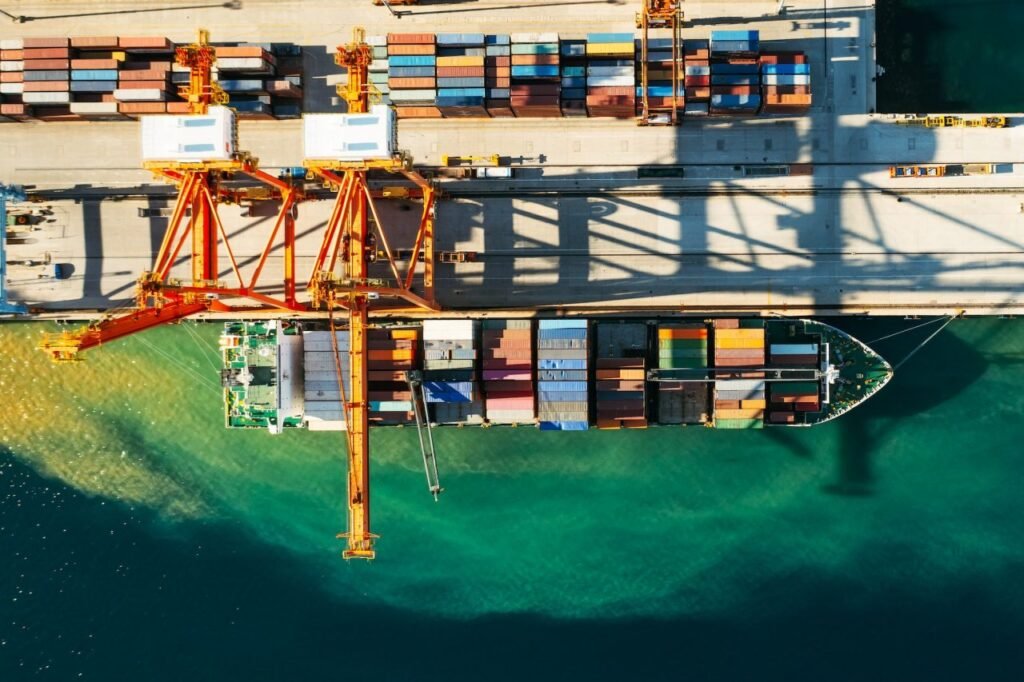
Sea Freight Shipping from China to India
Enjoy cost savings with our high-capacity sea freight options, ideal for large shipments without the rush.
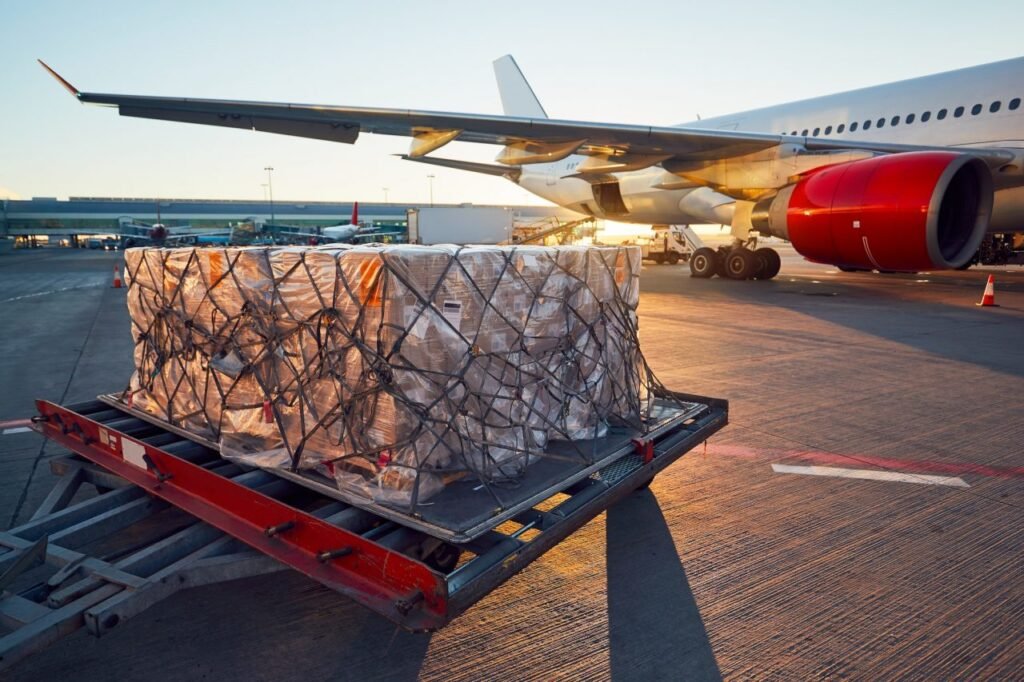
Air Freight Shipping from China to India
Expedite your urgent shipments with our air freight services, ensuring your business stays on schedule.

Door to Door Shipping from China to India
Experience hassle-free shipping with our door-to-door service, covering all logistics from pickup to delivery.
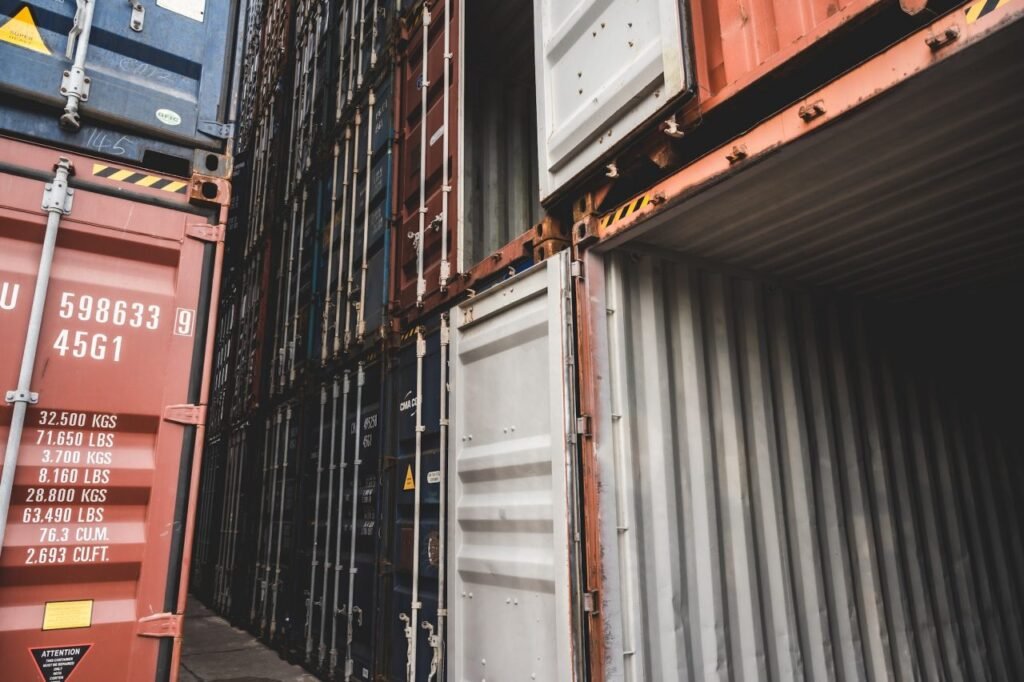
Cheapest Shipping From China to India
Maximize your budget with our affordable shipping solutions, designed to deliver cost-effective and reliable transport.
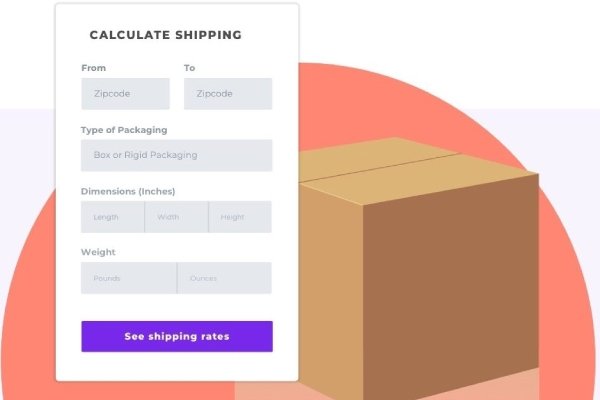
How long/much Shipping from China to India
Plan effectively with our clear and upfront information on timelines and costs, empowering your business decision-making.
FCL Shipping From China to India
Mbmlog’s FCL Shipping service can secure your large shipments with Full Container Load (FCL) shipping, ensuring your cargo travels together without disruptions, perfect for bulk goods needing robust protection.
LCL Shipping From China to India
Benefit from the flexibility of Less than Container Load (LCL) shipping, which allows you to send smaller shipments more frequently, helping manage inventory effectively without the need to fill a full container.
Additional services for shipping from China to India
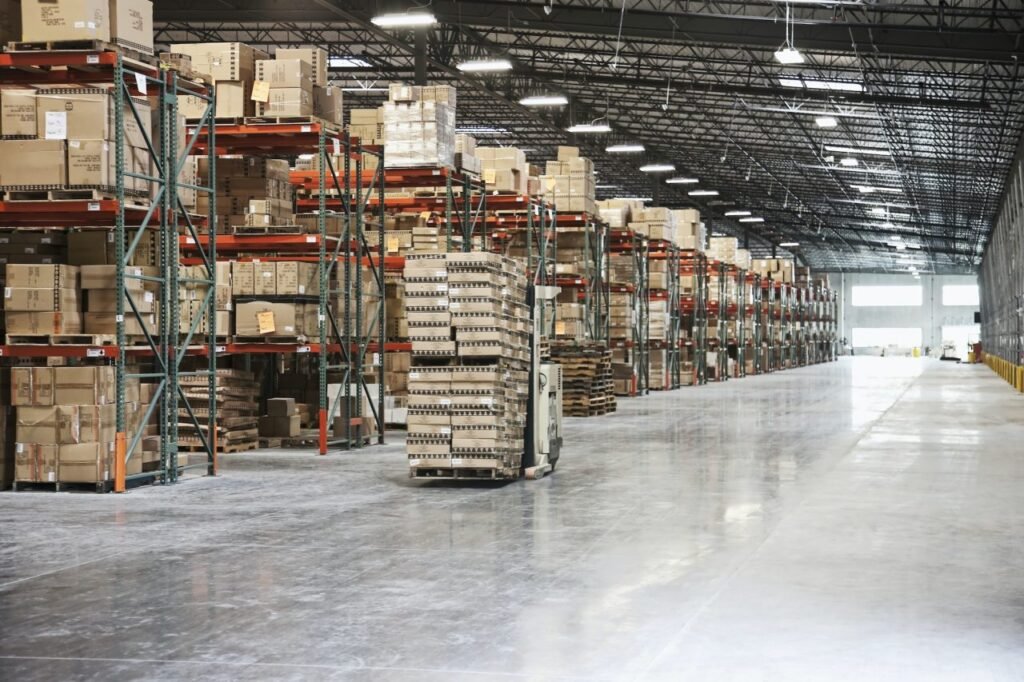
Pickup & Delivery
Streamline your logistics with our reliable pickup and delivery services, ensuring timely and efficient transportation from your doorstep directly to the destination, enhancing operational speed and reliability.
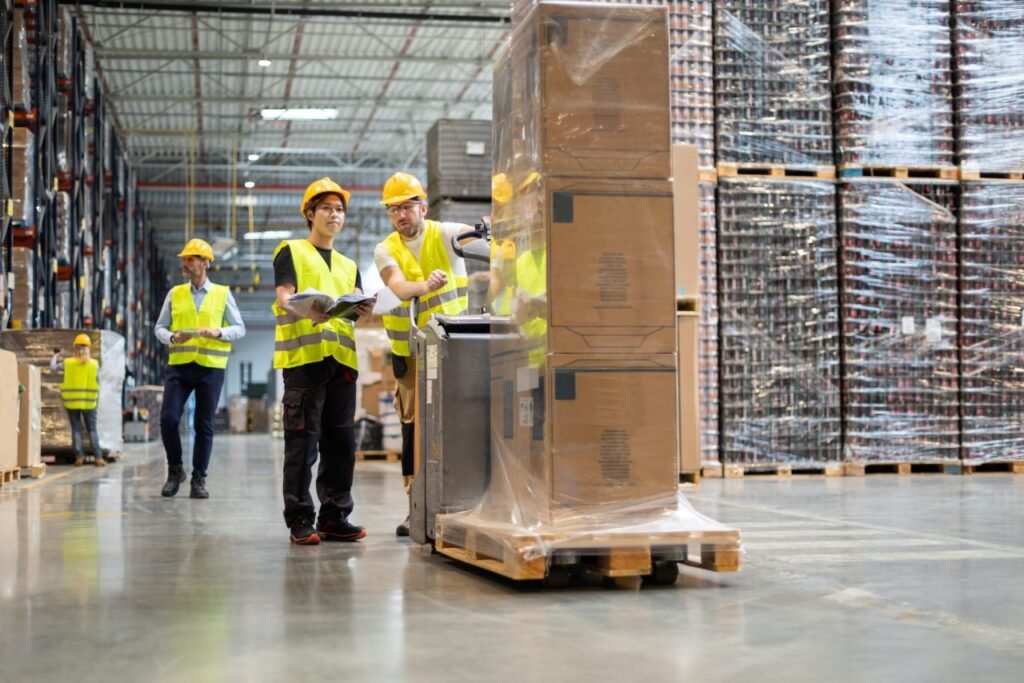
Warehouse
Utilize our secure and scalable warehousing solutions to safely store your goods, offering flexible storage options that adapt to your business needs, helping optimize inventory management and accessibility.
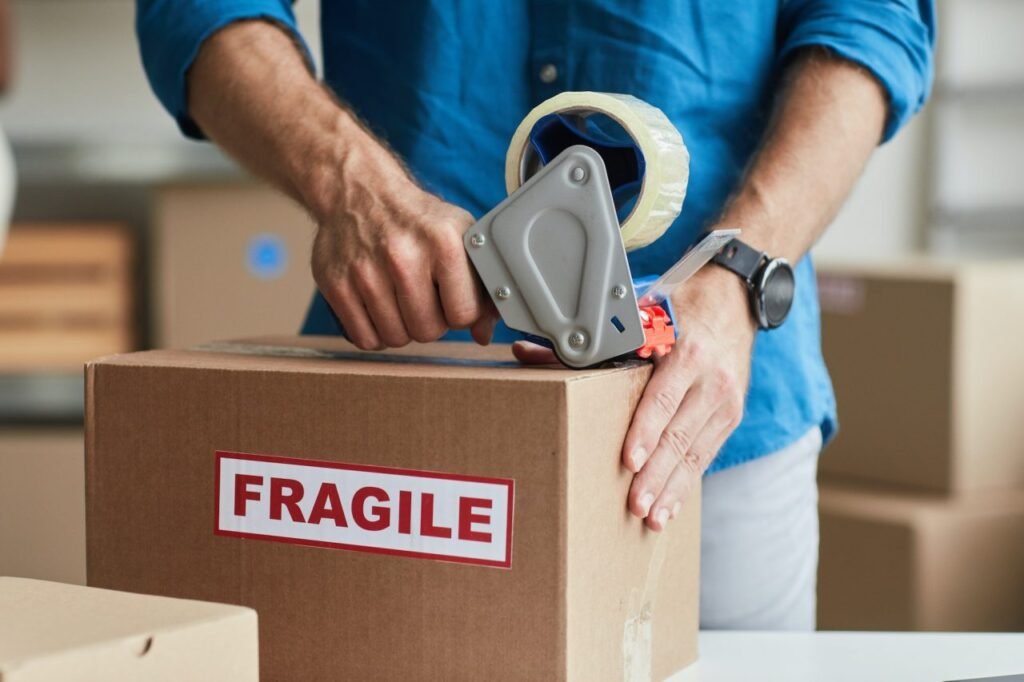
Cargo Insurance
Protect your investments with comprehensive cargo insurance, providing financial security and peace of mind against potential transit damages or losses, ensuring smooth and risk-free shipping operations.
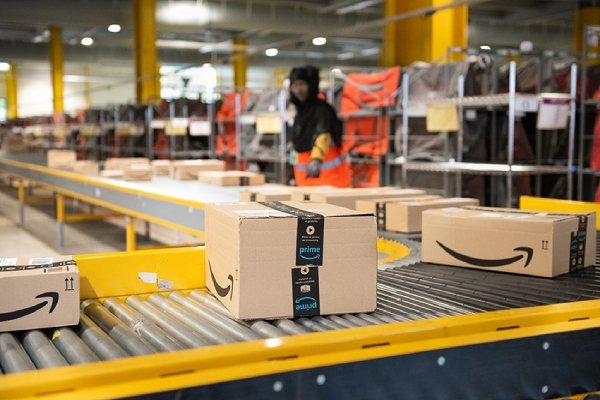
Shipping to FBA Warehouse
Facilitate seamless integration with Amazon’s network through our specialized shipping services to FBA warehouses, optimizing your fulfillment strategy, reducing handling times, and boosting your sales potential.

Custom Clearance
Expedite your international shipments with our expert custom clearance services, minimizing delays and ensuring compliance with all global trade regulations, simplifying your import/export processes.
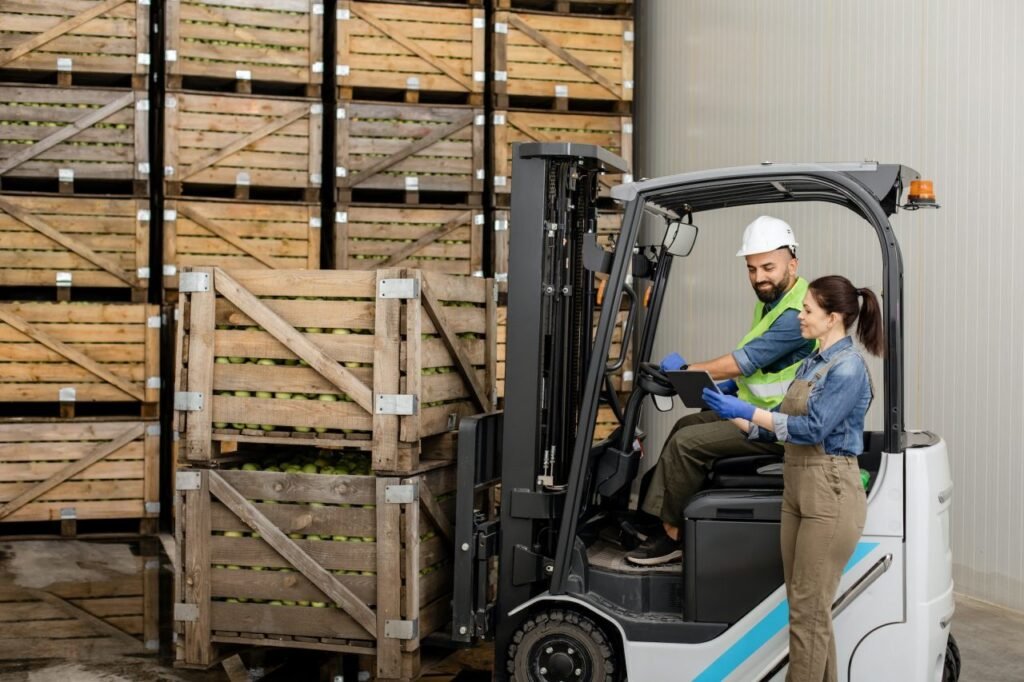
Loading Inspection
Ensure the quality and condition of your goods with our thorough loading inspections, securing shipment integrity and enhancing overall customer satisfaction by preventing potential issues during transit.

Express Shipping
Accelerate your delivery times with our express shipping options, ideal for urgent shipments that require fast and reliable service, helping you meet tight deadlines and exceed customer expectations.
Why Choose MBM ?
Experience the benefits of smooth moving
By choosing mbmlog, you gain competitive pricing, reliable and timely deliveries, and 24/7 expert support. Benefit from our 20 years of experience, seamless customs clearance, and free warehouse storage, ensuring your logistics are efficient, cost-effective, and worry-free.
20 Years Expertise
Mbmlog offers unparalleled logistics solutions. Our extensive experience ensures efficient, reliable services tailored to meet your diverse shipping needs.
Free Warehouse
Enjoy up to 30 days of free warehouse storage with mbmforwarding. Our secure, well-organized facilities ensure your goods are stored safely.
24hx7 English Speaking Expert Supports
We provides 24hx7 English-speaking expert support, ensuring seamless, efficient communication and immediate assistance for all your logistics requirements.
Cargo Insurance
Our company offers comprehensive cargo Insurance services, protecting your shipments with tailored insurance options, ensuring safety and peace of mind during transit.
On Tracking Services
mbmforwarding's on tracking services provide real-time updates on your shipments, ensuring you always have accurate information about your cargo's status.
Professional Custom Clearance
Our professional custom clearance services guarantee smooth, efficient processing. Our expert team handles all documentation, ensuring compliance with regulations.
